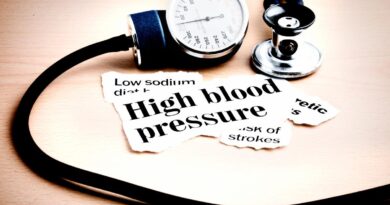Unveiling the Brew: The Surprising Health Tale of Coffee
Awakening Vitality: Unraveling the Mythical Charm of Coffee as a Health Elixir”
Coffee: the morning elixir, the midday pick-me-up, and the evening comfort. But is it a health boon or a guilty pleasure? The age-old debate around coffee’s impact on our well-being has taken a new twist, and the answer lies in the complexities revealed by recent studies.
Brewing Health: The Myth and the Fact
Fact: A Sip into Wellness
Recent studies paint a compelling picture of coffee as a health ally, showcasing its potential in safeguarding against type 2 diabetes, Parkinson’s disease, liver disease, prostate cancer, Alzheimer’s, and even computer-induced back pain.
Myth: A Tale of Moderation
Yet, amidst the cheers for coffee’s benefits, caution is warranted. The verdict on coffee swings both ways, influenced by genetics, age, and brewing methods. It’s a double-edged sword, and the key may lie in moderation.
The Heartening Sip: Cardiovascular Clues
Moderation Matters
A massive study in South Korea, involving over 25,000 coffee enthusiasts, hints at a positive link between moderate daily consumption (three to five cups) and a reduced risk for coronary artery calcium. This calcium metric is a crucial predictor of future heart disease.
Skin Shield: A Brew Against Melanoma
Four cups a day emerge as the sweet spot for a potential reduction in melanoma risk, a hazardous skin cancer. Notably, decaffeinated coffee fails to offer the same shield, emphasizing the role of caffeine.
Cognitive Aroma: Brewing Protection for the Brain
Neuroprotective Brew
Exploring beyond caffeine, researchers speculate that coffee might be neuroprotective. It could suppress the production of inflammatory markers in the brain, potentially delaying the onset of Alzheimer’s and Parkinson’s.
MS and Coffee: A Unique Blend
High coffee intake, ranging from four to six cups a day, appears to diminish the risk of multiple sclerosis (MS). The brew’s impact on MS relapses and long-term disability is now under the research microscope.
The Dark Roast Realities: What Every Sip Should Know
Quantity Quandaries
Before you indulge in that venti-sized delight, note that the definition of a “cup” is crucial. It’s about 5 to 8 ounces, with 100mg of caffeine. Skip the indulgence in oversized, sugary concoctions.
Filtering the Facts: Chock Full o’ Studies
While coffee has been under the research spotlight for decades, recent studies debunk the long-standing belief that excessive coffee consumption leads to an increased risk of death, cancer, or cardiovascular disease.
Beyond the Buzz: Cautions and Considerations
Harmful Highs: When Too Much is Too Bad
Despite the encouraging findings, some populations might find excessive coffee consumption potentially harmful. Individuals with sleep issues or uncontrolled diabetes should consult their doctors before embracing caffeine.
Genetic Jitters: The CYP1A2 Conundrum
A genetic mutation, known as CYP1A2, can influence how quickly our bodies metabolize caffeine. Understanding your version of this gene is crucial for managing coffee-induced jitters and potential high blood pressure.
Women’s Wellness Warning
For women, especially those in menopause or pregnancy, the relationship with coffee requires a nuanced approach. Coffee may exacerbate menopausal hot flashes, and caution is advised during pregnancy to avoid potential risks to fetal growth.
Brewing Matters: Cafestol Conundrum
The way you brew your coffee matters. Cafestol, a compound in the oily part of coffee, can spike bad cholesterol (LDL). Opting for paper filters strains out cafestol, ensuring your cuppa is a healthier indulgence.
Savoring the Brew: A Guilt-Free Pleasure
In conclusion, coffee is more than a morning ritual; it’s a complex concoction of health benefits and pitfalls. As long as you navigate the nuances, sipping this blessed brew can indeed be guilt-free. So, go ahead, relish your cup of coffee, but remember moderation is the key.
Frequently Asked Questions (FAQs)
1. Is coffee truly a health food?
Answer: Yes, recent studies highlight various health benefits associated with moderate coffee consumption, including protection against diabetes, Parkinson’s, and certain cancers.
2. How much coffee is considered moderate?
Answer: Moderate consumption, as suggested by recent studies, ranges from three to five cups per day. This amount appears to be linked with positive health outcomes.
3. Can excessive coffee consumption be harmful?
Answer: Yes, very high consumption (six or more cups a day) may reduce the benefits and, in some populations, pose potential harm. It’s essential to strike a balance and be mindful of individual health conditions.
4. What role does genetics play in coffee’s impact on health?
Answer: Genetic factors, particularly the CYP1A2 gene, can influence how the body metabolizes caffeine. Understanding one’s genetic predisposition is crucial for managing potential side effects.
5. Are there specific populations for whom coffee may not be advisable?
Answer: Individuals with sleep issues, uncontrolled diabetes, or specific genetic mutations affecting caffeine metabolism should consult their doctors before incorporating coffee into their diets. Pregnant women and those in menopause should also be cautious.




